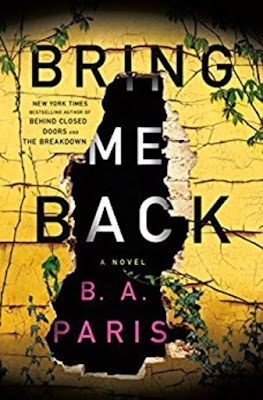188. From Slave to Priest by Caroline Hemesath
 From Slave to Priest: A Biography of Reverend Augustin Tolton (1854-1897), The First Black Priest of the United States by Sister Caroline Hemesath, SSF. Foreword to the 2006 edition by Deacon Harold Burke-Silvers. Foreword to original edition by Bishop H.R. Perry (Purchase)
From Slave to Priest: A Biography of Reverend Augustin Tolton (1854-1897), The First Black Priest of the United States by Sister Caroline Hemesath, SSF. Foreword to the 2006 edition by Deacon Harold Burke-Silvers. Foreword to original edition by Bishop H.R. Perry (Purchase)Pages: 237 pages + Bib & index
Ages: 18+
Finished: Sept. 12, 2010
First Published: 1973 (edition with new foreword 2006)
Publisher: Ignatius Press
Genre: biography, Catholic, Religion
Rating: 4/5
First sentence:
The John Manning plantation in Mead County, Kentucky, was jumping with excitement.
Acquired: Received a review copy from The Catholic Company.
Reason for Reading: I enjoy reading biographies Religious and I have a particular interest in the Civil War era and escaped slaves.
Augustine Tolton escaped slavery with his mother and two siblings when he was 8 years old. He had belonged to a Catholic family that had brought their slaves up in the religion. Augustine was always taken with the Faith, though the hypocrisy of his slave owners did not escape him. As a boy growing up in Quincy, Illinois he soon knew that he wanted to be a priest but didn't think it was possible for a black person. With the encouragement of his local priest, he let his dream take hold of him and aspired to the day he could be a priest and pastor to his own people. Augustine was unshaken in determination that Catholicism was the true religion for his people.
At this time, just after the Civil War, though, it seems the Church in the US didn't know what to do with a Negro who wanted to be a priest. Augustine had already met prejudice when parishioners who had no problem with the black population in the pews were aghast at his showing up in the school with their children. And if not for an Irish priest who preached fire and brimstone to his parish about the equality of *all* men in God's eyes every day until they dared not complain anymore, Augustine would not have received his basic education. But then came the time to study for priesthood and his local priests tried to get him into every single seminary in the US and each one declined with some version of "we are not ready". Various priests in the diocese tutored Augustine in the evenings as he worked during the day to support his family. Much time passed and it weighed heavily on his heart that he may never become a priest. But his devotion kept him determined and eventually he was sent to seminary in Rome where he had classes with students from all over the world including Africa and Asia.
When he came back to Quincy as the first black priest in the US (there had been others, of mixed-race, but they had "passed" as white) he was met with open arms by fellow blacks and the Catholic community and he was overjoyed to finally have reached his calling. But troubles still followed Father Augustine his whole life. He would have to deal with one spiteful, bigoted fellow brother in Christ who caused him much grief. Half his congregation was white and this caused racial problems from other parishioners in different churches who wanted the whites to give to their own coffers but Augustine refused to ask people to leave his church. He also had problems with black Protestants who were vehemently opposed to him taking his peoples' souls away from them. He eventually ended up in Chicago with his own parish and though his dream of building his own church was coming true, he was one priest administering to a large flock. With the abject poverty of many of his parishioners it was a losing battle to preach morality and convert souls, as poverty breeds immorality: adultery, alcoholism, gambling, fornication, etc.
Father Augustine was a Godly man, determined to give his people someone of their own race to confide in religously. Even dying black Protestants would send for him at the end instead of their own white ministers. He spent his life ministering to the ever enlarging black population of Chicago. He spent his evenings visiting the poor and the downtrodden. His life was devoted to spreading God's message and bringing the black community into communion with the Catholic Church. He died at an early age from exhaustion and sunstroke. He is a great testimony today as a man filled with God's love who never let the cross he had to bear stop him from continuing on with God's plan for him. He can be held up as an example of one whose Faith was often tested, and as a human did occasionally succumb to sorrow, yet he turned that sorrow over to the Lord and remained determined and unwavering in his Faith.
Sister Caroline writes Father Augustine's story in a narrative voice that almost reads as a novel. It is obviously heavily researched and the text is filled with excerpts from contemporary newspapers, Augustine's letters, and journal entries of both Augustine himself and those who knew him. This personal insight truly brings Father Augustine to life again for the reader. The book is also populated with a number of photographs and illustrations. Sister Caroline manages to capture both the public man on the outside and the private one inside. I highly enjoyed this biography.


A hard life obviously and one who was not deterred by man made barriers.
ReplyDeleteSounds like an interesting and fascinating read - although perhaps a hard one. Huh. Thanks for reviewing it!
ReplyDeletesounds like a good book. will have to add this to my TBR list
ReplyDeleteI can't remember where I first heard about Tolton, but his is a gripping story and a marvel of God's grace. I'm glad to see a book about him and enjoyed reading your review.
ReplyDelete